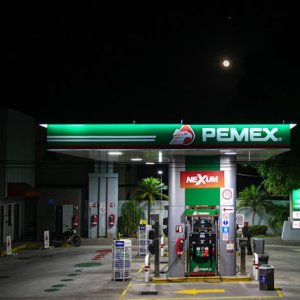
Water: The Biggest Challenge and Opportunity for Operators
Over the last several years, management and treatment of produced water in North American unconventional oil and gas fields has undergone significant changes. Once viewed as a waste product, produced water is quickly gaining importance as the world shifts focus to the conservation and reuse of natural resources instead of relying on traditional methods of dealing with the problem, such as disposal. As produced water volumes continue to rise, there are significant challenges faced by operators for responsible, economically effective treatment. This, coupled with changing regulations, and increased scarcity of fresh water across North America, is leading to companies looking for more sustainable, responsible water management programs that meet regulations and have an affordable cost.
While oil production volumes are forecasted to be flat until 2030, natural gas production is expected to grow. Produced water volumes will continue to increase by virtue of increased oil in water to oil ratio due to maturing wells. In North America, unconventional oil and gas production results in huge amounts of produced water, with an average ratio between 1:1- 8:1 barrels globally. To put this in perspective, if the Permian basin represented a national oil company, it would be the eighth-largest producer of water in the world. [1] Due to regulatory changes and environmental concerns that volumes should not go to waste, disposing of the water has become a significant source of OPEX. With that, operators are shifting focus toward a far more specialized view of water management.
The majority of produced water in North America is either injected into disposal wells or stored in ponds. Injection into disposal wells is popular as it is convenient, inexpensive and accepted by regulators. However, with priorities shifting to sustainable and responsible use of resources, there is a trend away from disposal in favor of innovative, new solutions and technologies that view water treatment holistically, such as desalination and beneficial reuse. Cost-effective desalination solutions are available that work consistently in harsh oil field environments and result in benefits such as providing water as a resource for fracking, or decontaminating produced water to be used for other applications, such as irrigation.
A sustainable vision of the future includes increasing awareness and shifting the mindset toward total water management programs that protect vital resources, provide economic benefits to the industry as well as a recycled product that can be used to improve operations and enhance the environment.
[1] Collins, Gabriel. Baker Botts Fellow in Energy & Environmental Regulatory Affairs, James A. Baker III Institute for Public Policy- Rice University. Produced Water Society. “Putting Produced Water Management in a Global Perspective.” Keynote address at Produced Water Society Seminar, Houston, TX, February 7, 2019.

















